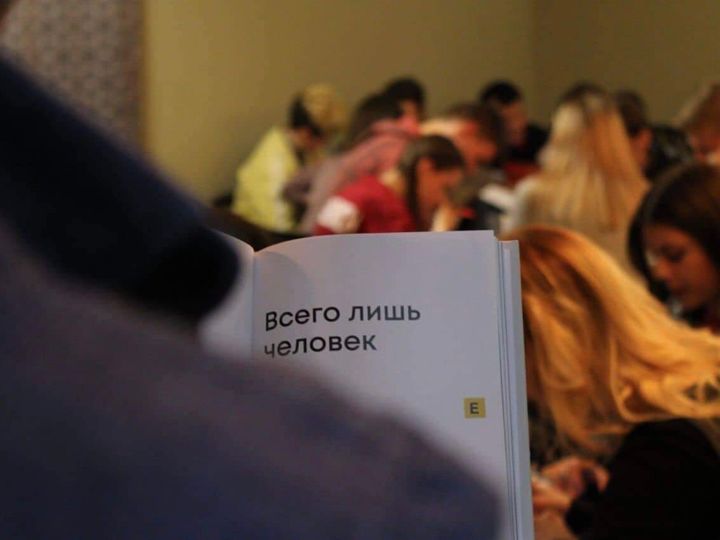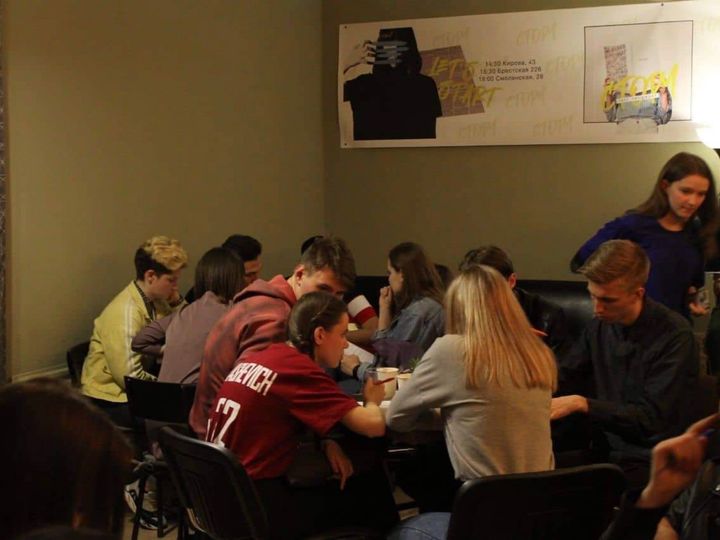As we proclaim the gospel we can expect different responses. In Acts 17 we see that while some people rejected the gospel and others believed it, there were others who wanted to ‘hear more’. In reality, this may end up being the largest group — neither sceptical nor convinced, they are open to continue to find out more. Therefore, we want to think carefully about how we can help such people continue their journey towards Jesus after the week has finished, as well as discipling those who have already come to faith.
This is where some CUs can fall down — having put lots of effort into organising a great Events Week they can forget to organise effective follow-up, so some of the impact of the week is lost.
There are a number of different ways that CUs have organised effective follow-up. You could offer more than one option, if you have the capacity, as not all forms of follow-up will suit all types of people.
Reading Uncover Gospels
Uncover Gospels were created specifically for students and are available in many different languages. They contain questions for discussion which make it really easy to go through the content with a friend on in groups. Make sure the CU are familiar with these, and are trained in how to use them before the Events Week, so that they are confident to invite others to read these with them as the week goes on.

Evangelistic Courses
Courses like Alpha and Christianity Explored are specifically designed for those investigating Christianity. They are easy to lead, as they come with videos of all the talks. If the CU run the course regularly then the CU members will become confident to invite people to come.

Joining an existing small group
Many bigger CUs also meet as small groups. In the UK these groups are called ‘Impact Groups’ and the Bible Studies they use have been designed to be equally accessible to believers and unbelievers alike. This means that they are easy to invite others into, and already have a sense of strong community.
Going to church
It’s great to encourage people to go to church — even if they’re not yet believers. It’s good if local churches are aware of the Events Week and ensure that the service immediately following the week will be especially relevant to those coming for the first time.
Here are some top tips on making sure your follow-up is as effective as possible:
- Plan — don’t wait until Events Week to start thinking about follow-up! Make sure that you have a plan in place beforehand.
- Make it good! We want to put the same effort into follow-up as we do the Events Week. If you are running a course, the same principles apply in terms of venue, food, publicity and so on. Christian students should feel confident that it will be done to a high quality, so that they will invite their friends.
- Publicise it well. Don’t wait for the end of the Events Week — do it all week! It’s a good idea to have flyers with information about the follow-up options at all of the events. It’s also good for the follow-up to be mentioned at the end of each event. This can be done by the hosts or through a short video. Check out this great example:
- Prepare the CU. Make sure the CU members know what the options are and are confident in how to invite people to come. If you are doing Uncover, then provide some training on how to use the resource, and encourage people to start doing it before the Events Week, to be ready.
Things to do:
- Decide. What forms of follow-up will you offer?
- Practical. Book venues, communicate with churches, order materials, etc.
- Publicity. Create physical and digital publicity to share your plans.
- Pray. Ask God that many more students will come to faith in Jesus.